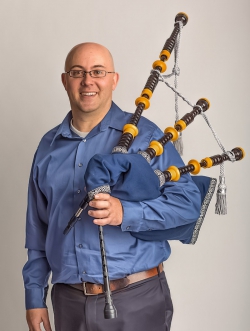Simulation Helps Drive Professor’s Research
PROVO, Utah – Aug 01, 2017 – When Romney Institute associate professor Chris Silvia and Rachel Krause, an associate professor at the University of Kansas, dove into an energy policy research study that would require significant means to test, they were presented with an opportunity to try their hands at a computer simulation.
The question: which government policies most influence consumers to purchase battery-powered electric vehicles (BEVs) instead of traditional cars? Among the policies under consideration were buying a city fleet of BEVs, offering incentives to lower BEV purchase prices, installing public charging stations, and pursuing a hybrid approach by providing a mix of the other three policies.
Finding the answer would require $5.5 million, three identical cities, and five to ten years of global measurement.
“We didn’t have time or money for that,” Silvia says. “We decided to do a simulation instead.”
In the simulation the researchers created a generic city with cars (called agents) being driven around it. Each driver had different characteristics and could see his or her surroundings, which showed the policy implementations and influenced the driver’s decision to buy an electric or traditional vehicle.
The researchers conducted the simulation 250 times for each policy. Although implementing any policy gave better results than no policy, they saw the biggest influx in electric cars purchased when they implemented a hybrid approach. Silvia and Krause’s findings were published in the September 2016 issue of the journal Energy Policy.
The research took two years to complete, and Silvia says the experience was a great learning opportunity for him and his students.
“I’ve done some classes on simulations, but now I can give my students a real-world example,” Silvia says. “One of the students was interested enough in it that he used this method to answer some questions for the city he interned with in the summer.”
Prior to coming to BYU to teach, Silvia received a PhD in public affairs from the School of Public and Environmental Affairs at Indiana University. He also holds an MPA from BYU and a master’s degree in public health from the University of Utah.
“I think the thing that he brings that is most unique is a diverse set of life experiences,” says Romney Institute director and associate professor Jeffery Thompson. “Chris spent time in the military, and he has experience in the healthcare industry. He does a great job of bringing his past experience into both his research and his teaching.”
Silvia’s experiences have taken him to many different universities, but he says BYU stands apart.
“The BYU MPA program is very special,” Silvia says. “The mission of the university and department is different, and that’s important to me. Here there is a focus on both rigorous academics and spiritual development. I think we do a great job preparing students for their future careers.”
Outside of his work, Silvia plays the bagpipes in the White Peaks Centennial Pipe Band. He also enjoys cooking, canoeing, watching Liverpool Football Club, and spending time with his wife and three children.
Media Contact: Jordan Christiansen (801) 422-8938
Writer: Tessa Haas Smith




